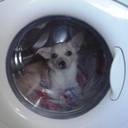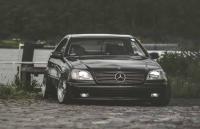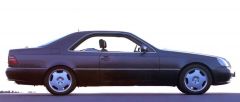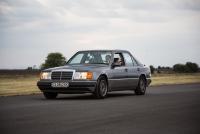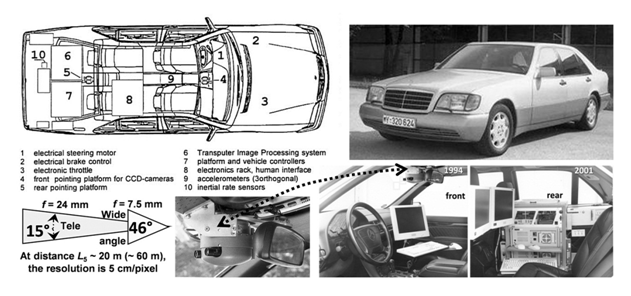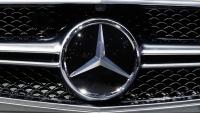Долния текст е на английски, но за който има време и желание да го прочете ще е доста интересен.
Става дума за историята на АМГ.
https://www.mercedes...ce/history.html
Over 50 years ago, a unique company arose as a result of an overwhelming passion for motorsports.
A as in Aufrecht, M as in Melcher and G as in Großaspach: the names behind these three letters were the starting point for the rapid development from a two-man operation to a global brand. The story starts in the 1960s: the two engineers, Hans Werner Aufrecht and Erhard Melcher, were working on the 300 SE racing engine in the Development Department at Daimler-Benz until the company discontinued all motorsports activities.
Yet the hearts of Aufrecht and Melcher beat unabated for motorsports. In Aufrecht’s house in Grossaspach, they spent their spare time further honing the performance of the engine. In 1965, Manfred Schiek, a colleague at Daimler, went to the start in the German Touring Car Championship with the 300 SE engine that Aufrecht and Melcher had developed, and won ten times! Schiek’s triumph formed the foundation of Aufrecht and Melcher’s reputation as experts for sustaining and optimizing the performance of Mercedes-Benz vehicles.
Reputation was not enough for Aufrecht, however: his vision was to offer road vehicles modeled after the successful racing car. In late 1966 he left Mercedes-Benz and persuaded Melcher to venture into a shared business with him. In 1967, they founded the “Aufrecht Melcher Großaspach Ingenieurbüro, Konstruktion und Versuch zur Entwicklung von Rennmotoren” (“Aufrecht Melcher Großaspach engineering firm, design and testing for the development of racing engines"). The headquarters were a former mill in the nearby municipality of Burgstall. Very quickly, the engines that were revamped there became a must for private racing teams.
The first milestone in terms of racing was in 1971 during the 24 Hours of Spa, which went down in the annals of the company: the AMG Mercedes 300 SEL 6.8 was the champion in its class and won second place overall. A heavy luxury sedan pulling a fast one on the competing lighter race cars. It caused a sensation, and the name AMG spread throughout the world.

This was followed by years of growth, in which AMG equipped more and more Mercedes models with performance technology. In the early 1970s, a new discipline evolved: customization. “Impossible” became a foreign word for the Mercedes-AMG team, and it remains so to this day. The attractive business segment allowed AMG to grow to a medium-sized company with more and more foreign clients. In 1976, Mercedes-AMG, together with about a dozen employees, moved to a purpose-built workshop and office space in Affalterbach.
AMG became an engine manufacturer in 1984 due to an innovation: Melcher developed a completely independent cylinder head with four valves per cylinder. In 1986, AMG implanted the 5.0-liter V8 in an E-class coupe, which received worldwide fame under the nickname “The Hammer”. To this day, this is a primary icon of the AMG myth in the United States. In the late 1980s, Daimler-Benz and AMG started to work together; first as official racing partners. The highlight of this period is the success story of the 190. The racecar, which was entered into the race by AMG with the support of the manufacturer, won a total of 50 DTM victories between 1988 and 1993.
The year 1990 – when the cooperation contract was concluded with Daimler-Benz AG – represents a true milestone in AMG history. Demand and customer acceptance were given a tremendous boost now that AMG products could be sold and maintained through Mercedes-Benz' worldwide network of company-owned sales and service outlets and dealerships. Further expansion led to the opening of a third plant in 1990 and an increase in the workforce to 400 employees. In 1993, the company unveiled the Mercedes-Benz C 36 AMG, the first jointly developed vehicle to result from the cooperation agreement. In another development the same year, the Patent Office recognized AMG as a trademark as the name was now so well known.
Hans Werner Aufrecht transferred a majority stake in the steadily growing company to DaimlerChrysler AG on January 1, 1999. On January 1, 2005 DaimlerChrysler acquired 100 per cent of the shares. This allowed the newly founded Mercedes‑AMG GmbH to benefit to an even greater extent from the Group's resources and global standing. In 1999 as well, the motorsport department was transferred to company founder Hans Werner Aufrecht's firm, H.W.A. GmbH (now H.W.A. AG). Located in close proximity to Mercedes‑AMG GmbH, some 200 employees now work there together with Mercedes-Benz Motorsport to manage the two companies' long-standing involvement in the German Touring Car Championship (DTM).
Mercedes-AMG GT S
Fuel consumption combined: 9.6 - 9.4 l/100 km | CO2 emissions combined: 224 - 219 g/km | Emission Statement [1]
Mercedes-AMG A 45
Fuel consumption combined: 7.3 - 6.9 l/100 km | CO2 emissions combined: 171 - 162 g/km | Emission Statement [1]


Fuel consumption combined: 11.4 l/100 km | CO2 emissions combined: 259 g/km | Emission Statement [1]
Mercedes-AMG GmbH currently employs a workforce of more than 1500 at its plant in Affalterbach. The professionalism of Mercedes-AMG is defined by its pursuit of high performance, precision and efficiency. Every Mercedes-AMG performance car promises to provide outstanding performance, exciting driving pleasure and ultimate quality down to the finest detail. A promise bolstered by the standards set for maximum ouput and torque, fuel consumption and emissions.
Now not only is the Mercedes-AMG model range larger and more varied than ever before, but it is also built to cater to the most diverse desires and requirements of the customer. The offering encompasses over 50 Mercedes-AMG performance vehicles with power outputs from 270 kW (367 hp) to 463 kW (630 hp). The selection of models on offer includes sedans, coupés and SUVs, as well as roadsters and the Mercedes-AMG GT, the second sports car developed independently by Mercedes‑AMG. Each AMG model is an all-round performance vehicle that excites with unique power delivery, tantalizing engine sound, excellent handling and a direct driving sensation. The proverbial exclusivity also comes as standard, as do outstanding quality and precise workmanship. In brief: all Mercedes-AMG models embody the levels of engineering and craftsmanship which are typical of the brand.

With its roots seated firmly in motorsport, the Mercedes-AMG performance brand has been at home on the race track for decades, from its position as the most successful brand in the history of the DTM, through to its global commitment to customer motorsport at the highest level with the SLS AMG GT3, the Mercedes-AMG GT3 and soon the Mercedes-AMG GT4. Mercedes-AMG is the most successful brand in the history of the DTM.
The Mercedes-AMG brand is also represented in Formula 1 in the 2012 season by the Mercedes-AMG Petronas Motorsport team and the engine manufacturer Mercedes-AMG High Performance Powertrains. In addition, AMG has been providing both the Formula 1 Safety Car and the Formula 1 Medical Car since 1996.










 Виж ГАРАЖА
Виж ГАРАЖА





